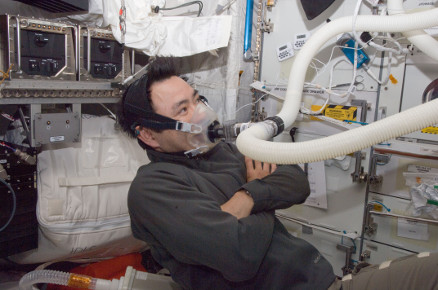Being in space evidently loads the body far less on average than on Earth because of the lack of gravitational pull. Exercise is prescribed to increase the necessary loading, and astronauts exercise almost every day in order to keep muscles and skeleton in good condition.
Astronauts’ body mass is in almost all cases reduced during a long-term flights, and the reasons are not well understood. Monitoring of energy consumption as compared to energy intake in the form of food, is tedious and complex, but this experiment tries to get as complete a picture of this relation as possible.
One of the many complicating factors for these measurements is the fact , that the body is composed of around 70% water, so that even small changes in body water will have a significant effect on the body mass measurements. The systematic ongoing negative energy balance observed in flight also contributes certainly to such a loss, in addition to the effect of disuse of muscles, that leads to lower overall muscle mass. This experiment therefore focuses on: 1. Measuring changes in energy balance due to long term space flight, and 2. Monitoring adaptation in the components of the total energy expenditure. 3. Finally, with these data we hoped to be able to contribute to forming an equation for the real energy requirements of astronauts.
The Principal Investigator is Stéphane Blanc, PhD, Associate Professor Institut at Pluridisciplinaire Hubert Curien , CNRS, Department of Ecology, Physiology and Ethology, France.


